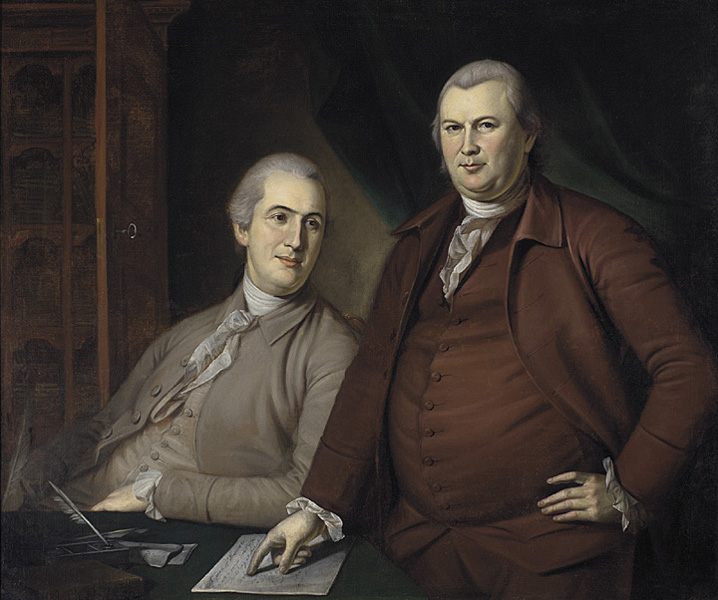The men and women who helped shape the United States in its earliest days live large in our historical memory. They are the subjects of television shows, Broadway musicals, and best-selling biographies. Their faces adorn our currency and maintain a physical presence through the litany of monuments, memorials, and statues scattered across the nation. Their names can be found in those of schools and universities, streets and highways, businesses and nonprofits, stamped indelibly into the map of the country and the minds of students.
As with all historical heroes, though, it’s worth asking: How much of their legacy is hot air, and how much is deserved? Which founders are the beneficiaries of centuries-long PR campaigns, and which have been unfairly forgotten or downplayed? As the United States grows older, are there some whose records we now regard with a more critical eye, and others whose insights seem more valuable? Just in time for Independence Day, here are our picks of some of the most over- and underrated founders.
Bryan’s Picks
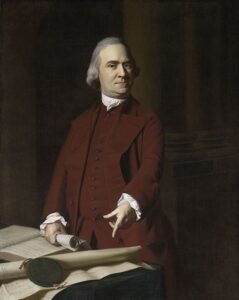
Overrated: Sam Adams
I’ve always had a complicated relationship with Sam Adams. I wouldn’t say he is overrated, necessarily; his influence on New England and general colonial resistance to British policies that erupted into outright rebellion can hardly be debated. I would say instead that Sam Adams should be differently rated, or perhaps more clearly understood by the modern American public. Popular historical memory in our country has whitewashed our own Revolution into a glorious model of moderate resistance and restraint, especially when compared to the French Revolution less than a decade later. Further, this has become a platform from which Americans have looked down on violent uprisings across the proceeding three centuries, up to and including violent and destructive recent protest within the United States. The problem is that the American Revolution was equally as violent, often led in that violence by Sam Adams. Adams was, literally, a rabble rouser; the Sons of Liberty and other inspired groups physically assaulted British government officials, destroyed and looted their homes and property, and forced them and their families to flee for their own safety (all the more unsettling coupled with the fact that, even after the hated legislation, Americans were the least taxed subjects of the British Crown). As the war progressed, Adams’s vitriolic rhetoric arguably helped begin a vicious cycle of atrocities perpetrated by American Patriots against their Loyalist neighbors. Let us, then, not downplay Sam Adams’s role in American independence, but let’s discuss it with eyes wide open to the brutal truths of our own political heritage.
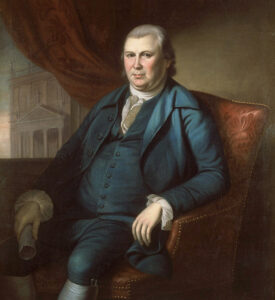
Underrated: Robert Morris
Considering the central role that finances play in our own daily lives (and in the ever-swirling 24-hour news cycle these days), it might be surprising how little they are focused on in history, or certainly in more publicly accessible histories. Then again, the details of how countries stay financially afloat do not exactly make for good storytelling. Regardless, hidden behind the flashy portraits of men such as Washington, Jefferson, Franklin, and even Adams lies the dependable, essential workhorse that is Robert Morris. A representative to the Second Continental Congress from Pennsylvania, Morris was a signatory to the Declaration of Independence, Articles of Confederation, and Constitution, but his most notable contribution to the fight for independence was his role as the Congress’s Superintendent of Finances from 1781 to 1784. This position had been created to deal with the financial mess facing the fledgling nation (an unsurprising state of affairs that almost always accompanies decolonization struggles). As superintendent, Morris was responsible for finding a way to pay for all the Revolution’s necessary supplies, and as agent of marine, simultaneously in charge of the Continental Navy and actually transporting all those supplies to where they were needed. Unsurprisingly, Morris was one of the first to voice criticisms of the Articles of Confederation and unsuccessfully proposed giving Congress taxation powers. At the Philadelphia Convention, Morris is said not to have talked much in the deliberations surrounding drafting a new Constitution, but in a sign of his influence, most of his philosophies on governmental function made it into the document regardless. After Washington’s election, the first President of the United States really only had one choice for his secretary of the treasury: now-Senator for Pennsylvania Robert Morris. Morris declined, instead suggesting a young protegee of his named Alexander Hamilton. It is hard to imagine a single figure having as much practical impact on the birth of our country, and Morris certainly deserves to be lauded alongside and even perhaps above our traditional luminaries.
Ryan’s Picks
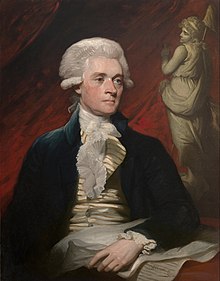
Overrated: Thomas Jefferson
At this point, a lot of ink has been spilled praising, criticizing, complicating, and re-evaluating the legacy of Thomas Jefferson at just about every point in his career, and I personally don’t have much interest in re-litigating it all line-by-line. Put concisely, though, while Jefferson’s accomplishments are laudable, the discrepancy between his political rhetoric and weighty personal faults is hard to ignore. His greatest contribution to the United States in the founding era is, of course, the Declaration of Independence—an achievement that is shadowed by his status as a slaveholder, relationship with Sally Hemmings, and lifelong doubts as to whether white and black Americans could live together in peace. While nevertheless a great achievement in political literature, Jefferson’s personal hypocrisy to the Declaration’s eloquent statements of universal rights and liberties significantly tarnishes the cult-like praise that the “Sage of Monticello” has historically enjoyed as an alleged champion of these very values. Similarly, his celebrated Notes on the State of Virginia is even more starkly divided between Jefferson’s advocacy for individual liberties and outright racism. As a founding-era politician, meanwhile, Jefferson’s record is just as mixed, with his tenure as Virginia’s wartime governor marked by his tepid defense of the state against British invasion balancing his achievements as a legislator. Though he saw more success as ambassador to France after, it was in a far lower-stakes environment thanks to the diplomatic successes of Franklin and Adams and the end of the war. This, too, kept him from playing any part in the creation and ratification of the Constitution– but given Jefferson’s anti-federalist tendencies, it’s hard to imagine it would have been a productive one had he been present. Beyond the founding, his tenure as secretary of state, vice president, and president would be similarly divided, marked both by great achievements (such as the Louisiana Purchase) and dismal failures rooted in his inability to reconcile his political philosophy with actual events and truths (such as the Embargo of 1807). None of this is to fail to credit Jefferson for what he did achieve, but rather to suggest that the legacy of one of the most celebrated founding fathers, and whose position in the pantheon of American gods has been secured since his very lifetime, is built on far shakier ground than has long been considered.
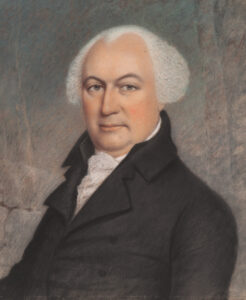
Underrated: Gouverneur Morris
While James Madison is rightfully credited as the originator of the Constitution, it was not his hand which put the document itself into writing, nor which wrote the now immortal preamble beginning with “We the people;” that honor goes to Gouverneur Morris, the “Penman of the Constitution.” Of no relation to Robert, he nevertheless spent much of the Revolution as the other Morris’s financial assistant and the rest as an indispensable ally and correspondent to George Washington in a Continental Congress that often doubted the general’s leadership abilities. His most important contributions to the nascent United States, though, undoubtedly came during the Constitutional Convention of 1787 where, as his sobriquet suggests, he played a significant role in finalizing the language of the document itself, speaking more than any other single participant (173 times!) and making major contributions to the composition to the legislative and executive branches. None of this is to say, however, that Morris was keen on every decision reached by the Convention. During its debates, he spoke ferociously against the hypocrisy of the infamous Three-Fifths Compromise and the institution of slavery itself, which he regarded as “in defiance of the most sacred laws of humanity.” His antislavery beliefs would only grow strong later in life, to the point of advocating for the secession of New England and New York during the War of 1812, which he viewed as war of expansion driven by slaveholders. Given the tenor of American expansionism in the decades following his death in 1816, he seems prescient. These views made him controversial in his time and prevented him from rising to high office– as did his libertine personal life. Today, though, he stands out positively among a group of men who either passively accepted or explicitly embraced slavery. Nevertheless, he went on to serve as Washington’s Ambassador to France during some of the most intense days of the French Revolution, a New York senator, and pioneer of the Erie Canal. Though an elitist like many of his friends in the Federalist Part – such as Alexander Hamilton, for whom Morris served as the organizer of his papers following Hamilton’s death at Burr’s hands – he nevertheless embraced the Constitution’s republican government as the best of the possible options. All combined, Morris was an essential and forward-thinking framer whose contributions, interesting life, and contrary positions at least should earn him a spot among the remembered– and a snappy comeback to anyone who claims that Madison “wrote” the Constitution.
Heather’s Picks
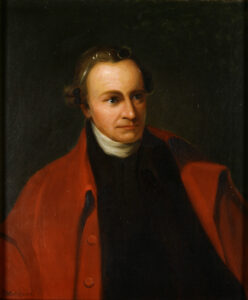
Overrated: Patrick Henry
Celebrated orator of the eighteenth century, Patrick Henry crafted turns of phrase that electrified the colonies with revolutionary feeling, stirring the hearts and winning the minds of intelligentsia and common folk alike. His immortal 1775 entreaty to “give me liberty or give me death” has been passed down through generations of Americans, his words turned into bumper stickers and T-shirts, appropriated by political movements both dangerous and inane. But how much does the average American know about Henry beyond one famous line? His legacy as a household name (or, at the least, a household quote) is superficial, his fame disproportionate to his contributions as a founder. During the Revolution, his involvement was by and large performed for the specific benefit of his home colony (and, later, state) of Virginia. His time with the Fifth Virginia Convention included serving on the committee that drafted the Virginia Declaration of Rights and the first Virginia Constitution. After serving his first five terms as governor of Virginia, he served in the Virginia House of Delegates before serving two more terms as governor afterward. When offered a seat as a delegate at the 1787 Constitutional Convention, he declined, fearing the creation of a dangerously overpowered central government, and he openly and fervently opposed ratification of the US Constitution. Throughout his political career, he claimed to oppose slavery, calling it a “lamentable evil,” a “repugnant” and “abominable practice.” This would be all well and good, were it not for the fact that Patrick Henry owned increasing numbers of enslaved people throughout the course of his life; at the time of his death, he owned 112 people. His woe-is-me defense of his slave ownership—“I am drawn along by the general inconvenience of living without them”—lacks integrity, and his proposed solution printed in the Auburn Union—“I believe a time will come when an opportunity will be afforded to abolish this lamentable evil. Everything we can do, is to improve [employ] it, if it happens in our day; if not, let us transmit to our descendants, together with our slaves, a pity for their unhappy lot, and an abhorrence of Slavery”—is contemptible. Where here is the audacious rhetoric for which he was so renowned? In this 1773 letter, Henry unveils himself for what he truly was: not heroic, but merely self-serving, advocating for bold change only when doing so was of direct benefit to and convenient for himself and his station in life.
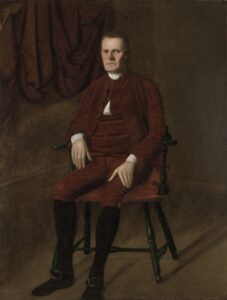
Underrated: Roger Sherman
Unlike Henry and most of the other founders, Roger Sherman did not own slaves. (Well done, Roger.) He was also the only founder to sign all four documents of the Continental Association, the Declaration of Independence, the Articles of Confederation, and the Constitution. (Honorable mention goes to Robert Morris and John Dickinson, who each signed three.) Sherman was elected to the Continental Congress in 1774. At the Second Continental Congress, Sherman would be one of the Committee of Five, a group of five members who drafted and presented the Declaration of Independence to the Congress. After signing the Declaration in 1776, he helped draft the Articles of Confederation. Perhaps Sherman’s most influential contribution to the founding of the nation would come a decade later, though, at the 1787 Constitutional Convention. Although himself a strong supporter of a unicameral structure for the legislative branch, Sherman recognized the need for compromise between states of smaller and larger populations if the Constitution were to be ratified. To that end, he promoted the Connecticut Compromise (or Great Compromise), which outlined a bicameral legislature with one branch—the House of Representatives—having state representation proportional to state population and the other—the Senate—having equal representation for all states. Although Sherman proposed that House representation be proportional to the “numbers of free inhabitants” in each state, ultimately the Three-fifths Compromise would allow representation to be based on all free inhabitants and three-fifths of “all other Persons.” Sherman would go on to serve in Congress as a representative (1789–91) and then a senator until his death in 1793. While in Congress, Sherman supported Alexander Hamilton’s plan for the federal assumption of state debts, establishment of a national bank, and enactment of a tariff. Like anyone, Sherman had his faults, of course. One was his fear of direct democracy, believing that “the mass of people lacked sufficient wisdom to govern themselves” and that “no branch of the federal government [should] be elected directly by the people.” Nevertheless, Sherman’s role in the independence of the American colonies and the foundation of their new united government was immense, and his impact on the trajectory of the United States can be called nothing less than underrated.
